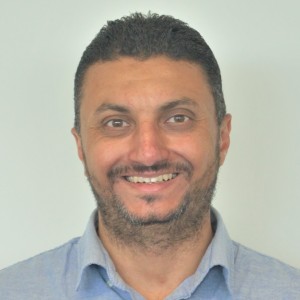
Technical University of Munich
Nano and Quantum Sensors
Hans-Piloty-Str. 1
85748 Garching
ahmed.barakat[at]tum.de
Research WebsiteMy fascination with quantum science took root long before I formally engaged with it. I believe this stems from its profound significance on multiple fronts: it offers the most precise description of nature known to date, serves as the foundation for groundbreaking technological advancements, and challenges our very understanding of reality.
Description
Tell us a little about yourself — your research interests, the group you work in, and how long you have been in your current position.
I obtained my PhD in the field of nonlinear dynamics from the Technical University of Darmstadt, while focusing on the parametric coupling between nonlinear oscillators in a generic mathematical framework and applying my findings on a system of microcantilevers. Afterwards, I moved to Munich in June 2022, and I am working since then in the Chair of Nano and Quantum Sensors with
Prof. Eva Weig. My current work focuses on the parametric and nonlinear phenomena that arise in nanomechanical resonators with a special consideration for the coupling between oscillation modes.
What motivates you to apply as a PhD representative?
I am highly enthusiastic to be part of the MCQST family, thus, for being able to strengthen the communication, collaboration, and knowledge sharing across the research teams despite their diverse disciplines. This relies on the fact that the postdoc mid-level scientists share not only good scientific understanding but also executive flexibility. Moreover, I believe I could contribute to this vibrant network due to my deep interest in science philosophy and management. I am motivated to join the board for gaining experience about the management of projects and networking in science. Moreover, I believe I can contribute to some extent due to my longtime interest in science policy making and my understanding of the philosophy of science.
Tell us about your current research work and what excites you most about it.
My current research work involves the study of coupling-induced phenomena, e.g. avoided level crossing, in two-mode or two-level linear and nonlinear systems. In addition, the utilization of parametric coupling in retrieving knowledge about or controlling the system's dynamics proves to be significant in both classical and quantum systems. This analogy can pave the way for more controllability of future nano-"mechanical” quantum resonators in addition to the development of nano and quantum sensing.